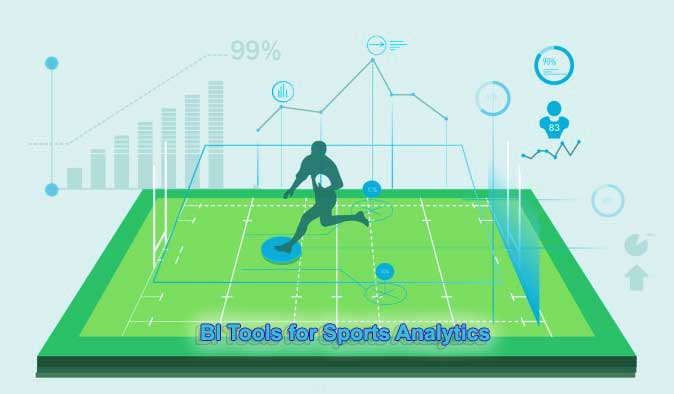BI Tools for Sports Analytics

Business Intelligence (BI) tools are critical to sports analytics, as they enable teams, coaches and organizations to gain valuable insights from data to improve performance, make strategic decisions and enhance the fan experience.
BI commonly used in sports analysis
Here are some BI tools commonly used in sports analysis:
Tableau: Tableau is a popular data visualization tool that allows sports analysts to create interactive dashboards and reports.
This is useful for visualizing player performance metrics, game statistics, and fan engagement data.
Power BI: Microsoft’s Power BI is a versatile tool for sports analysis.
It can help sports organizations analyze player data, track team performance, and create dynamic reports for sponsors and fans.
QlikView/Qlik Sense: QlikView and Qlik Sense are BI tools known for their data analysis capabilities.
They are valuable for sports analysts to conduct in-depth analysis of player statistics, injury trends, and game strategies.
SAS Visual Analytics: SAS Visual Analytics is a comprehensive BI tool that offers advanced analytics and data visualization features. Suitable for sports organizations that want to perform complex analysis of player performance and fan data.
RapidMiner: RapidMiner is a data science platform that can be applied to sports analytics for predictive modeling, player profiling, and injury prediction.
This is very useful for data-driven decision making in sports.
Sisense: Sisense is known for its data integration and analytics capabilities.
Sports teams and organizations can use Sisense to consolidate data from multiple sources, including ticket sales, social media, and player statistics, to gain holistic insights.
IBM Cognos Analytics: IBM’s Cognos Analytics provides reporting and dashboard capabilities for sports analysis.
It helps sports organizations track key performance indicators (KPIs) related to player performance, revenue and fan engagement.
Google Data Studio: Google Data Studio is a free data visualization tool that can be used to create interactive reports and dashboards.
Sports analysts can use it to visualize player statistics and share insights with stakeholders.
Sports-specific platforms: Some sports organizations opt for dedicated analytics platforms such as Catapult Sports or Second Spectrum, which offer data-driven insights specifically tailored to athlete performance and game strategy.
Excel: Although not a dedicated BI tool, Microsoft Excel is widely used in sports analysis due to its versatility.
Sports analysts can use Excel to perform data analysis, create models, and produce reports.
BI for sports analysis
When selecting a BI tool for sports analytics, organizations should consider factors such as data integration capabilities, ease of use, scalability, and the specific needs of their analytics project.
These tools help sports teams and organizations gain a competitive advantage by optimizing player performance, making strategic decisions, and improving the overall fan experience.